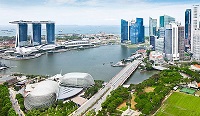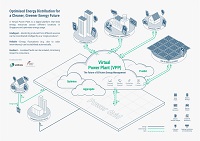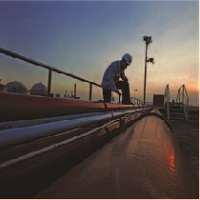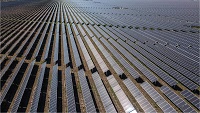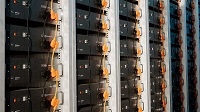We thank Mr Lim Poh Seng for the letter “Offer subsidy to install solar panels on landed properties” (June 26).
Solar power is currently the most viable renewable energy source for electricity generation in Singapore. Our solar deployment has grown significantly, with installed capacity increasing by about 10 times in the last seven years. These include solar panels installed by home owners, who enjoy cost savings by offsetting their electricity consumption and selling excess electricity to the grid.
There are sufficient economic incentives for home owners to install solar panels. The payback period for home solar power systems has improved to as short as five years due to the decline in cost of solar panels. Owners of solar power systems are also able to sell the renewable energy certificates (RECs) generated from solar energy. To do so, the solar power system would need to be registered with an REC issuer or a third-party platform. Home owners can check with solar power vendors or REC issuers in Singapore for more information.
In addition, some solar power vendors offer “solar leasing” agreements or “rent-to-own” plans that can reduce upfront capex for the home owner.
We agree with Mr Lim that the adoption of more solar power in Singapore would be key to our energy transition journey. We will continue to support solar adoption across all sectors in Singapore.
Toh Wee Khiang
Director, Hydrogen and Sustainable Energies Office
Energy Market Authority
Forum: Offer subsidy to install solar panels on landed properties
By: Lim Poh Seng
As Singapore continues its push towards a greener future, there remains untapped potential in encouraging private property owners to contribute to national sustainability goals. One effective way could be to offer targeted subsidies for the installation of solar panels on landed properties.
Many landowners have substantial rooftop space ideal for solar power generation. While some are already doing it, others may be hesitating due to the upfront costs and long payback period.
By offering partial subsidies or rebates, the Government could accelerate adoption and make solar panels more accessible to middle-income households.
This could be structured as a return of land-related subsidies or tax offsets. With such support, landowners could help reduce national grid dependency, lower overall carbon emissions, and even feed excess energy back to the system.
Similar incentives have worked well in countries like Australia and Germany, where residential solar adoption has soared due to government-backed programmes.
Encouraging the installation of solar panels on the rooftops of private homes would align with Singapore’s vision of a resilient, low-carbon city. It would be a win-win strategy: empowering citizens to invest in clean energy while reinforcing national sustainability efforts.
